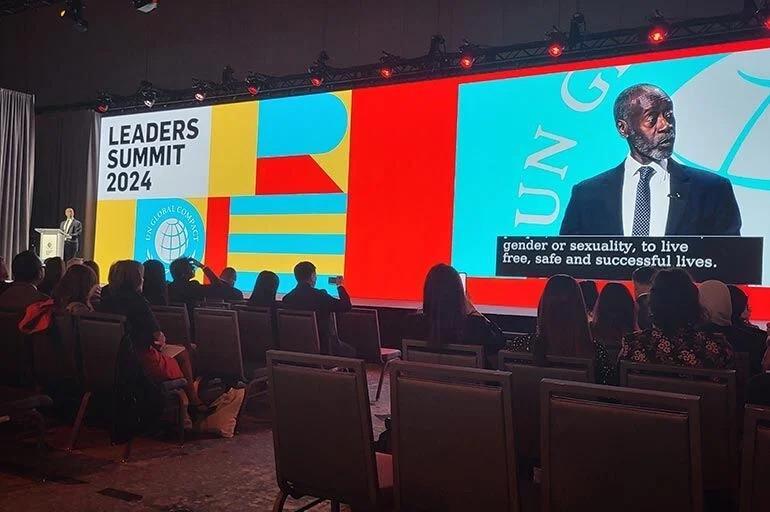
Five Takeaways From Climate Week NYC 2024
Addressing the Elephant in the Room
No sustainability gathering could take place in 2024 without addressing the context of global conflicts, the upcoming U.S. elections and ESG investing and DEI policy debates. These topics set the tone for many Climate Week events. Despite the headlines, the research is clear .
When it comes to investing, sustainable investment funds grew 15% last year , and more than half of investors plan to boost sustainable investments in the coming year. A decade of research by McKinsey on more than 1,200 companies shows that more diverse organizations financially outperform their peers. Sustainability remains a critical priority, and the participants at Climate Week NYC were fully committed to advancing it.
AI Promises Progresses, But at a Cost
While generative AI presents many opportunities for progress, it is increasingly clear it will come at an environmental and human cost. Climate Week NYC events included sessions on the promise of AI to help advance technology and progress. Accenture launched their Generative AI for the Global Goals white paper at the UN Global Compact. At the same time, I heard as many questions about AI ethics, and an increasing concern about the energy demand of AI computing.
Forbes estimates that AI will double the demand for data center energy consumption by 2028 in an already energy-stressed world. Microsoft announced plans to restart the Three Mile Island nuclear plant to support their data center growth, as well. To capture the benefits of generative AI, organizations will also need to plan energy and water strategies to address the resource demands created by its use.
Water and Climate Risk are Inextricably Linked
Water access, conservation and quality was a strong secondary theme that ran through every Climate Week event. Jason Morrison, the head of the CEO Water Mandate, spoke persuasively about how that water is no longer "just" a sustainability topic. Climate change and water scarcity is making it an acute community resilience and risk management priority. He urged companies to build collaborative partnerships at a community and basin level to protect water resources .
Reporting Requirements Continue to Converge, Just Not Yet
With Corporate Sustainability Reporting Directive (CSRD) implementation deadlines on the horizon, representatives from all the major sustainability reporting frameworks spoke about the need for alignment, convergence and more consistent and comparable reporting between companies. However, there is still a lack of clear, actionable guidance for reporting companies. Regardless of which reporting framework becomes the industry standard, the trend will surely be towards greater transparency, more third party verification, and a more digital reporting approach.
From Slide Decks to Spreadsheets
The time has arrived for credible plans and actions on climate change. It was clear that sustainability and decarbonization are becoming more operationalized at major companies with a higher expectation of verification and documentation. With this shift the expectation for sustainability professionals is to become more operational, more action-oriented and more data-driven. The focus will also extend beyond operational fencelines to encompass supply chains and product end-of-life.
Don't worry, CSOs, more audit and legal help is on the way! In a recent podcast, Ellen Weinreb talked about the rise of the ESG Controller role within corporations, which can help with compliance, data governance and regulation.
Nate Pepper is Vice President of Communications at Veolia North America. He writes, speaks and teaches about the intersection of communications, sustainability and technology. Through his career he has led sustainability communications and reporting for global industrial companies. His work in sustainability and corporate social responsibility reporting has led to improved ratings and multiple awards for his clients.

Legal Disclaimer:
MENAFN provides the
information “as is” without warranty of any kind. We do not accept
any responsibility or liability for the accuracy, content, images,
videos, licenses, completeness, legality, or reliability of the information
contained in this article. If you have any complaints or copyright
issues related to this article, kindly contact the provider above.


















Comments
No comment